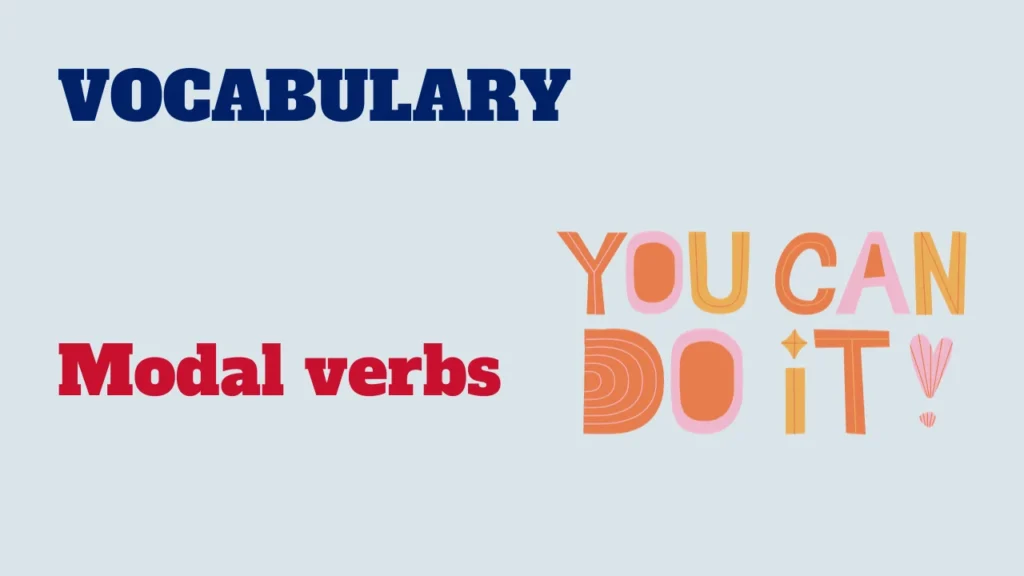Modal verbs are a special category of verbs in English that express necessity, possibility, permission, ability, or likelihood. They play a crucial role in conveying different shades of meaning in sentences.

In this vocabulary lesson, let’s explore common modal verbs and their uses.
Modal verbs vocabulary
Can: Expresses ability or permission.
Example:
I can swim.
You can go to the party.
Could: Indicates past ability or a polite request.
Example:
I could run fast when I was younger.
Could you pass me the salt?
Will: Indicates future action or a willingness to do something.
Example:
I will call you later.
They will come over in the evening.
Would: Often used to express a polite request, to talk about hypothetical situations, or to refer to future time from the point of view of the past.
Example:
Would you mind closing the door?
If I had more time, I would travel.
They said they would eat out tomorrow.
Shall: Traditionally used for suggestions or to indicate a future action.
Example:
Shall we go for a walk?
I shall do my best in tomorrow’s exam..
Should: Expresses advice, recommendation, or obligation.
Example:
You should eat more vegetables.
I should finish my homework.
Must: Indicates necessity, a strong recommendation or obligation.
Example:
You must wear a seatbelt.
We must be on time.
Ought to: Similar to “should,” expressing duty or moral obligation.
Example:
You ought to apologize.
We ought to help those in need.
May: Expresses permission or possibility.
Example:
You may use my pen.
It may rain later.
Might: Indicates a possibility or a more uncertain degree of likelihood than “may.”
Example:
She might come to the party.
It might be too late.
Can’t: Expresses impossibility, inability, or a strong negative inference.
Example:
I can’t swim.
She can’t be at the meeting; she’s out of town.
Could have: Indicates a past possibility or a missed opportunity.
Example:
I could have passed the exam if I had studied more.
Will have: Indicates a future action that will be completed before another point in the future.
Example:
By next year, I will have graduated.
Would have: Expresses a hypothetical situation or regret about a past action.
Example:
I would have helped if I had known about the issue.
Should have: Expresses regret or criticism for a past action that didn’t happen.
Example:
You should have called me.
Congratulations on expanding your vocabulary with modal verbs! Understanding how to use these verbs will enhance your ability to convey nuances in meaning in various situations. Practice incorporating them into your sentences to strengthen your language skills. Stay tuned for more vocabulary lessons on our language-learning journey!



